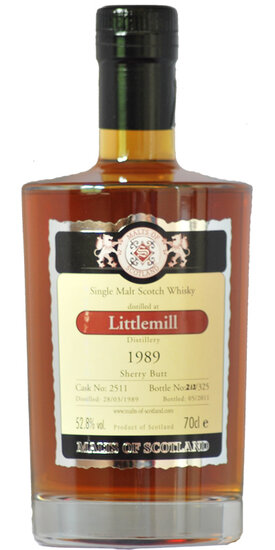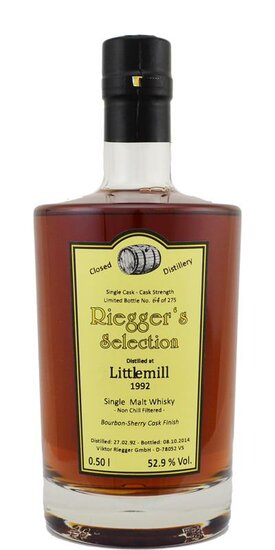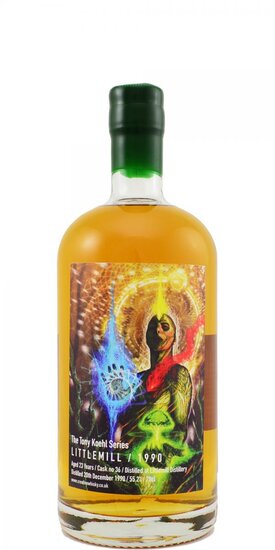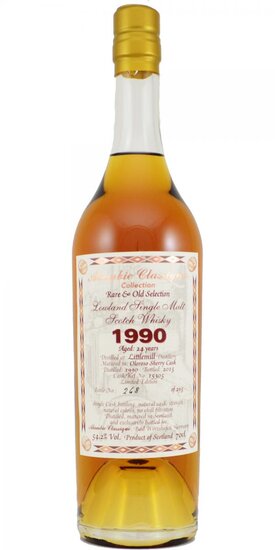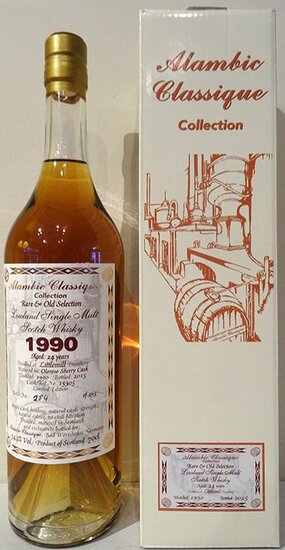Littlemill Distillery
The closed Littlemill Distillery, located in the Lowlands of Scotland, boasts a fascinating history dating back to the late 18th century. Although the distillery is now shuttered, the legacy of Littlemill continues to thrive in the rare and coveted whiskies still available. This article delves deep into the history, production, and enduring mystery of the Littlemill Distillery.
Origin and Early Years
The exact founding date of Littlemill Distillery is a matter of debate, but it is often said to have been established in 1772, making it one of the oldest registered distilleries in Scotland. Littlemill was situated on the banks of the River Clyde in Bowling, West Dunbartonshire, a location perfectly suited for whisky production due to the abundance of pure water and the proximity of grain suppliers.
The early years of Littlemill were, like many distilleries of that time, tumultuous. The distillery changed hands several times and was involved in both legal and illicit distilling activities. It wasn't until the 1820s, following the introduction of the Excise Act of 1823, that the distillery began operating within legal frameworks and its production started to stabilize.
Innovation and Uniqueness
One of the most remarkable aspects of Littlemill was its innovative approach to whisky production. In the 1930s, Duncan Thomas, then owner, introduced several forward-thinking techniques that were ahead of their time. He experimented with different types of malt and distilled whisky using both traditional pot stills and more modern continuous stills.
Moreover, Littlemill employed an unusual triangular still, designed to increase reflux and produce a lighter, more delicate spirit. These innovations imparted a unique character to Littlemill whiskies, setting them apart from other Lowland whiskies.
Closure and Decline
Despite the innovations and rich history, Littlemill struggled to compete in the modern market. The distillery closed its doors in 1984, a time when many other distilleries also shuttered due to an oversupply of whisky and declining demand. In 1989, the distillery was briefly reopened by Gibson International, but this was short-lived. Production ceased definitively in 1994.
Littlemill's ultimate fate was sealed when the buildings were destroyed by fire in 2004. This tragic end meant that whisky would never again be produced under the Littlemill name. The site was later completely demolished, erasing the last physical reminders of the distillery.
The Legacy of Littlemill Whisky
Although Littlemill no longer produces, its legacy lives on in the bottles of whisky still circulating in the market. These bottles are highly sought after by collectors and enthusiasts due to their rarity and the unique character of the whisky. Littlemill whisky is often described as light and floral, with subtle sweetness and complex fruity notes.
In the years following the closure, Littlemill attained an almost mythical status. The distillery produced various expressions, including several single malts and blended whiskies. Each bottle tells a story of a distillery ahead of its time, producing whisky of exceptional quality despite many challenges.
The Future: Revival and Tales
While Littlemill itself will never produce again, there have been revival initiatives aiming to honor the name and heritage of the distillery. Loch Lomond Group, the current owner of the Littlemill brand, has released several old stocks in recent years, including some very old and rare expressions that have been highly praised.
These releases are often accompanied by beautiful stories and historical context, adding to the mystique and allure of Littlemill. It is clear that, while the buildings and stills may be gone, the soul of Littlemill lives on in the whisky and stories we continue to share.
Conclusion
Littlemill Distillery is a splendid example of a whisky producer that, despite many obstacles, has left an enduring impression in the world of Scotch whisky. From its early days in the 18th century to its tragic end in 2004, Littlemill has built a legacy of innovation, quality, and character. The whiskies still available serve as a reminder of what once was and remain a cherished treasure for collectors and enthusiasts worldwide.
The history of Littlemill is one of pioneering spirit and perseverance. While the distillery may be closed, its impact is palpable, and its stories will continue to live on in the glasses of those fortunate enough to take a sip of this historic whisky.











